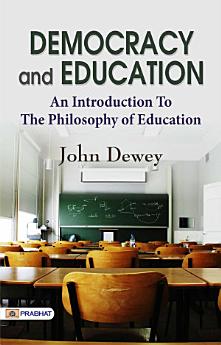John Dewey, a seminal figure in Philosophy of Education and Educational Philosophy, presents his influential work, Democracy and Education. Available as a John Dewey Kindle book, this text is part of initiatives like Project Gutenberg Education. As a major Educational Theorist, Dewey develops a comprehensive Educational Theory that fundamentally challenges traditional views, particularly addressing Dualism in Education. He offers a compelling Critique of Faculty Psychology, arguing against the notion of innate, separable mental powers, and provides a detailed Critique of Formal Discipline, demonstrating why training isolated skills doesn't transfer broadly. Instead, Dewey champions Growth in Education as a continuous process, emphasizing the dynamic nature of the learner. He redefines Educational Aims, asserting that education itself has no aims, but rather people (teachers, parents) have aims that should be founded on the intrinsic activities and needs of the individual, moving beyond mere Preparation vs Growth Education. A cornerstone of his approach is the concept of Interest in Education, seen not as a private whim but as the moving force of objects in purposeful activity, leading to a deeper understanding of the Student Learning Process. The book explores the critical relationship between Subject Matter Education and Educational Method Theory, arguing for their essential unity rather than separation. Dewey discusses how the Teacher Student Roles differ regarding subject matter—the teacher presenting the systematized form, the student experiencing the fluid, personally connected form. He advocates for Learning by Doing, where primary subject matter involves active engagement with the world, resulting in true Experience and Education. Dewey provides profound insights into Knowledge in Education, contrasting static, "cold-storage" information with knowledge as working capital for further inquiry. He connects Knowledge Conduct Education, showing how knowledge gained through first-hand experience significantly affects action. Thinking and Education are presented as purposeful action guided by foresight and a survey of conditions. The text examines Educational Values Theory, distinguishing between Intrinsic Value Education (appreciation) and Instrumental Value Education (valuation). Dewey critiques the traditional Segregation of Values, particularly the historical division between Culture and Education and Utility in Education, which is rooted in the separation of work and leisure classes. He challenges the notion of Liberal vs Practical Education, arguing for an education that integrates thought and practice for all, fostering Social Efficiency Education—the capacity to share fully in common activities—within a Democratic Society Education. The book also touches upon the role of various subjects like Arts Occupations Education and Science Education Theory, emphasizing their humanistic potential. Philosophical traditions like Scholasticism Education, Empiricism Education, and Idealism Education are discussed in relation to educational implications. Dewey highlights the interplay of Heredity Environment Education, stressing that while heredity provides native endowment, the environment determines its effective function. Finally, the work addresses Individual Social Education and the principles underlying Moral Education Theory. His work offers a comprehensive framework for reforming education to cultivate mind and character within a society striving for democratic ideals.







